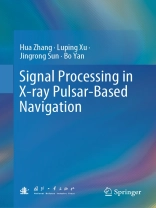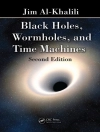This book highlights key technologies of signal processing in pulsar-based navigation. It discusses the modeling, simulation, acquisition, and correction of relativistic effects of signals from X-ray pulsars. It demonstrates the methods of contour reconstruction and denoising, and introduces the concept and methods of the average contour. The performance of the phase measurement methods using signal contour is analyzed. The role of wavelets and bispectral methods in the denoising of pulsar signals is discussed. The measurements of pulsar signals’ arriving time are looked into from the perspective of time series. The book is intended for researchers and engineers interested in pulsar-based navigation. It is also a good reference source for senior undergraduates and postgraduate students majoring in navigation and signal processing.
Inhaltsverzeichnis
Introduction.- Pulsar data acquisition and relativistic effect correction.- Characteristics and model of pulsar signal.- Validation of X-ray Pulsar Simulation Signals.- Pulse average profile accumulation method and phase measurement performance.- Pulsar signal denoising.- Pulsar Signal Detection.- Measurement of Arrival Time of Pulsar Signals.
Über den Autor
Dr. Hua Zhang is a professor at Xidian University. His research focuses on time-varying astronomical signal processing and navigation mechanism. In the past decade, he has carried out in-depth research in the processing of extremely weak signals, especially the signals from the X-ray pulsars.
Dr. Luping Xu is a professor at Xidian University. He is mainly engaged in the research of signal detection and information processing, target detection and tracking, and navigation guidance and control.
Dr. Jingrong Sun is an associate professor at Xidian University. His research mainly focuses on time-varying astronomical signal processing and pulsar-based navigation.
Dr. Bo Yan is an associate professor at Xidian University. His research mainly focuses on weak signal processing.












